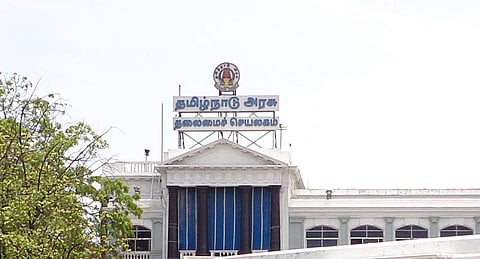

Tamil Nadu is in a fix, and it needs to tie its shoelaces before it trips. On the 6th of November, top political leadership was present at The Oberoi in New Delhi to attend the 2015 Edition of ’The State of States Conclave’. Besides the revelation of the phenomenal rise of states such as Odisha and Assam across various indicators, there was another fact that surprised many: Tamil Nadu, the state that won the distinction of best overall state last year, had tumbled to the twentieth. Its drop was the largest. Indeed, the landscape has never looked eerier for Jayalalithaa’s party.
The Conclave, based on the State of States study, was first held in 2003 as an evaluation of liberalisation and post-economic reform policies on individual Indian states. Therefore, it focuses on analysing the business and development scenario. It is Tamil Nadu’s fall in three factors, as reported in this article by India Today’s Kaushik Deka, that contribute to its slip: agriculture, education, and infrastructure. Conversely, Odisha and Assam win because of their tryst improving roads, electricity, as well as indicators of macro economics. In other words, it’s TN’s fall in the realm of infrastructural development that pushes it most towards the bottom. Deka also mentions the nine months Jayalalithaa spent in jail as an event that has most certainly affected Tamil Nadu’s business environment.
However, this is not the only such study to report such findings. Tamil Nadu had its Global Investment Meet in September this year, and has announced over 2.4 lakh crore worth of private investment promises as a result. The World Bank, however, provided a report that presents the state in a very contrasting situation. It ranked it as number 12 in India with regard to ease of doing business. Three years earlier, the American public policy think tank Cato Institute had shown Tamil Nadu as the second best state for exporting and importing goods as well as legal structure and security. It was an easy state for a business to pave its way, promising growth and attracting investors. Over the past three years, indicators have only shown a negative trend for the state.
Even if we ignore all of these and look at the amount of investment promised, a certain reality about these ‘promises’ (or Memorandum of Understanding's) are that they remain on paper, while actual investment is usually not more than 5%. In 2015 itself, out of a total of 17,412 crore worth of MoU’s signed; only 0.2% or 41 crore worth of investment was implemented up till July.
Tamil Nadu faces these because of three reasons according to Dr. DK Srivastava, the Former Director of the Madras School of Economics and Chief Policy Advisor for EY India. First is massive a power-shortage in the state (an infrastructural fallacy), second is political stagnation and bureaucratic delays (governance being an issue), and third is the current scenario where other states are catching up. These three factors, along with a rise in labour forces for the unorganised as opposed to organised sector as according to Professor R Srinivasan, Faculty of Econometrics at University of Madras, are the reasons for the stunting that the state has been witnessing.
Of course, in such a scenario, TN has no option but to pull-up its socks and concentrate its efforts on ensuring a smooth business environment. The state must accept these statistics are genuine and a forewarning, and work towards reversing this trend